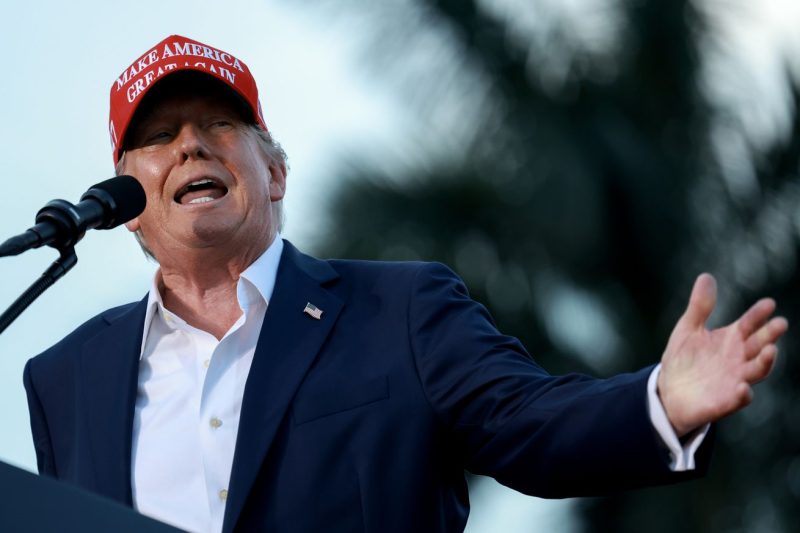In the era of social media giants and their significant influence on public discourse, the handling of high-profile individuals’ accounts has been a highly debated topic. One such individual who has been at the center of this discourse is former President Donald Trump. His accounts on Facebook and Instagram were subjected to restrictions following the Capitol riot on January 6, 2021. However, the recent decision by Meta to drop these restrictions on Trump’s accounts has sparked fresh discussions regarding the role of social media platforms in shaping politics and public opinion.
The restrictions on Trump’s accounts were initially imposed as a response to his posts deemed to incite violence and spread misinformation during the tumultuous period surrounding the presidential election and its aftermath. Many critics argued that social media platforms have a responsibility to regulate the content posted by influential figures to prevent the spread of harmful messages. The restrictions on Trump’s accounts were seen as a way to hold him accountable for his actions and prevent further potential harm.
On the other hand, supporters of Trump viewed the restrictions as an attack on free speech and a violation of his rights as a public figure. They argued that social media platforms should not have the power to silence individuals, especially those holding political office or seeking to engage with the public. The decision to reinstate Trump’s accounts was seen as a step towards rectifying what some perceived as unjust censorship.
Meta’s decision to drop the restrictions on Trump’s accounts was met with mixed reactions from the public and policymakers alike. Some praised the move as a demonstration of the platform’s commitment to free expression and open dialogue. Others criticized Meta for seemingly prioritizing profit and engagement over accountability and the potential consequences of allowing controversial figures to reach large audiences unchecked.
The debate over the regulation of high-profile individuals on social media platforms is far from over. The Trump case serves as a poignant example of the complex challenges that arise when balancing free speech, accountability, and the need to prevent harm. As social media continues to play a central role in shaping public discourse and political narratives, the decisions made by companies like Meta regarding account restrictions will continue to be closely scrutinized and debated.
Ultimately, the handling of Trump’s accounts on Facebook and Instagram by Meta is a reflection of the broader societal tensions surrounding free speech, accountability, and the power of social media platforms. The repercussions of these decisions extend beyond the individual cases to impact the way we understand and navigate the digital landscape in the 21st century. It remains to be seen how future developments will shape the relationship between social media companies, high-profile individuals, and the public as we navigate the evolving challenges of the digital age.

